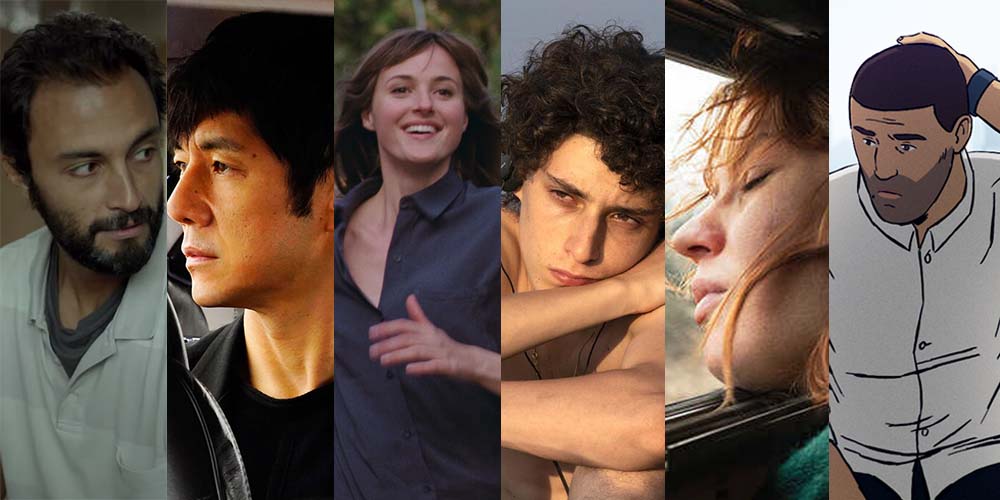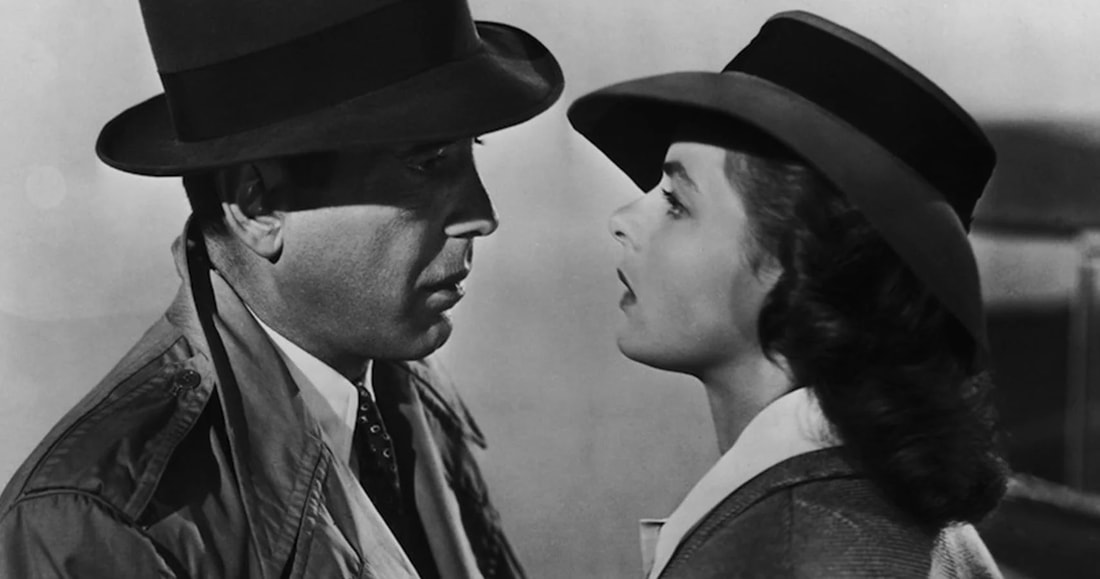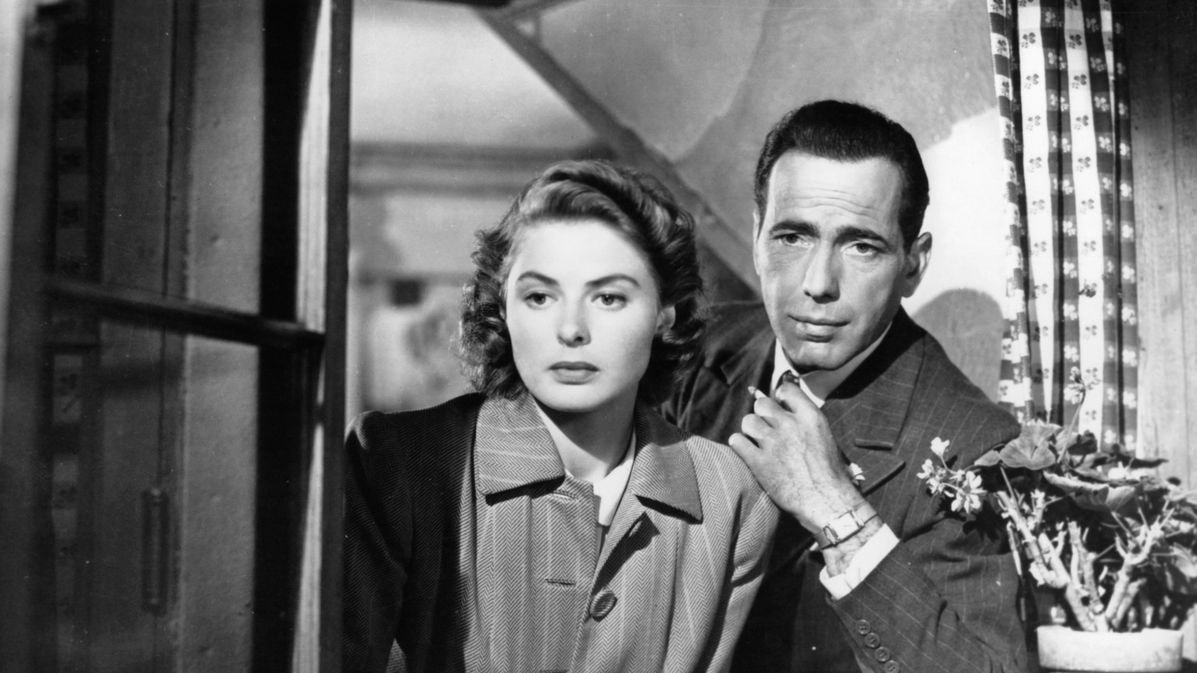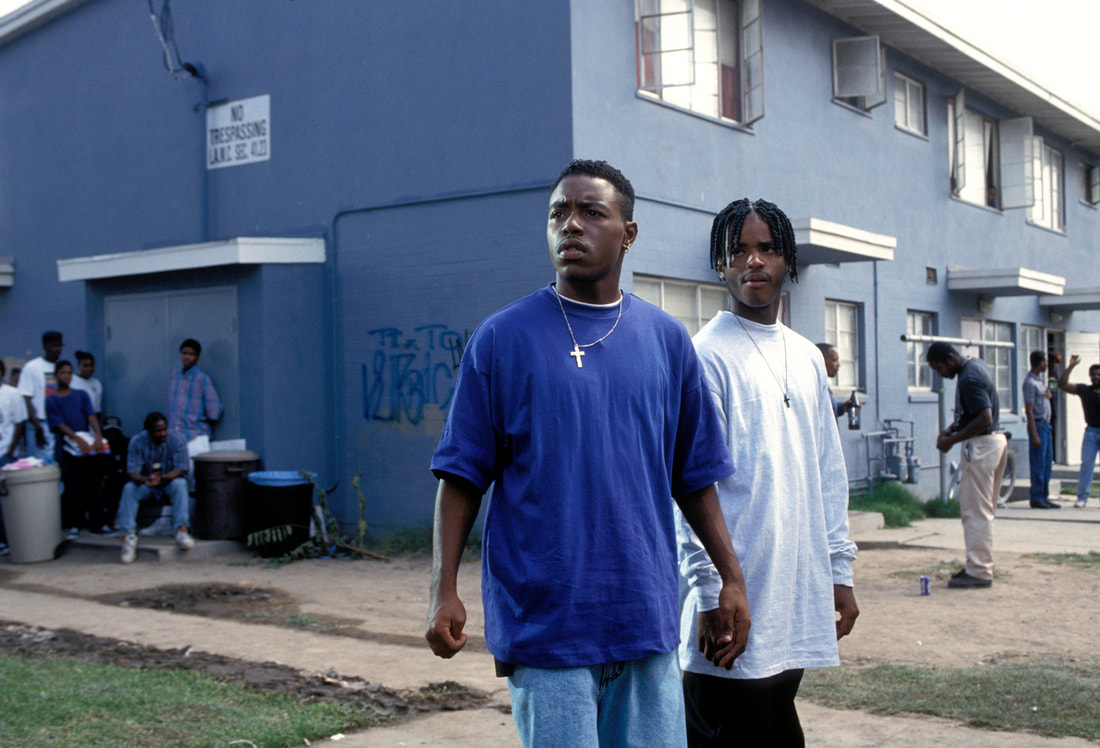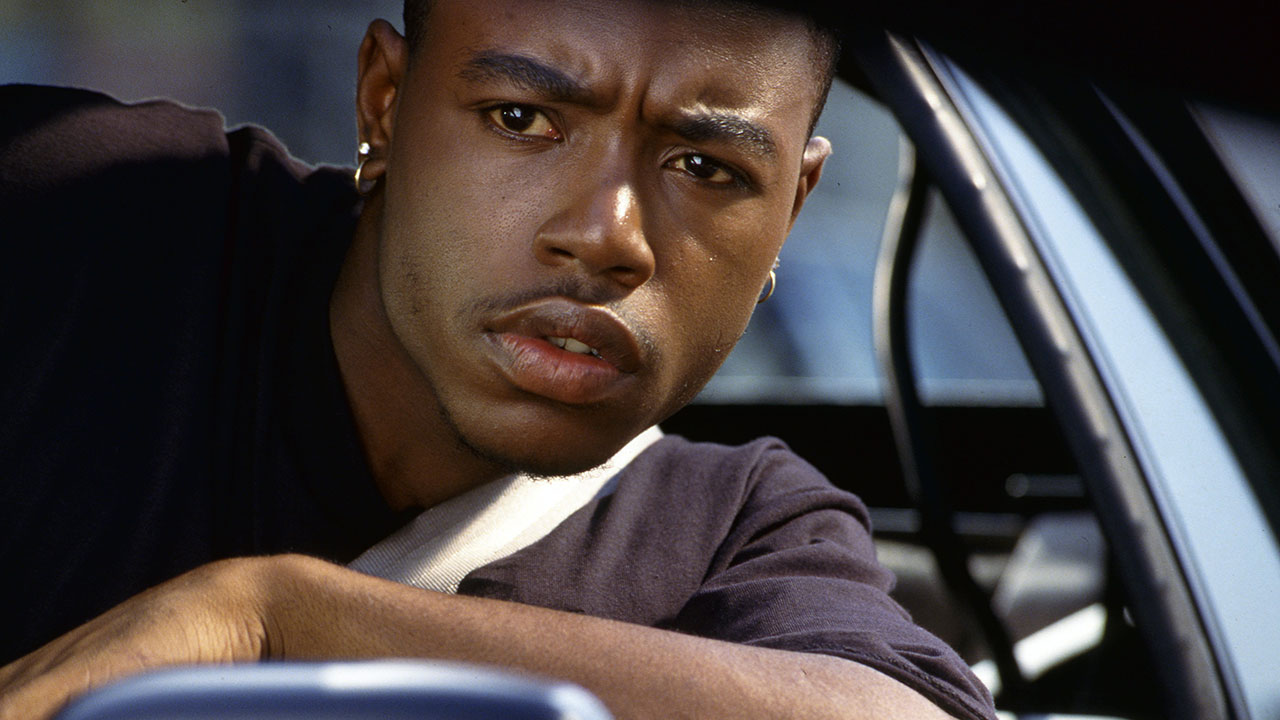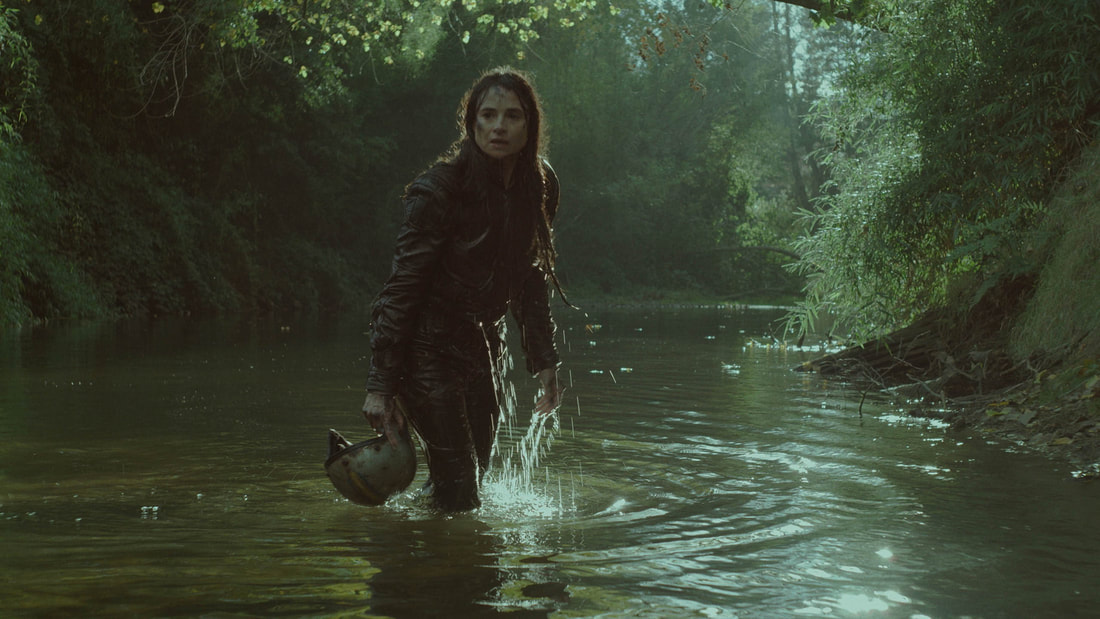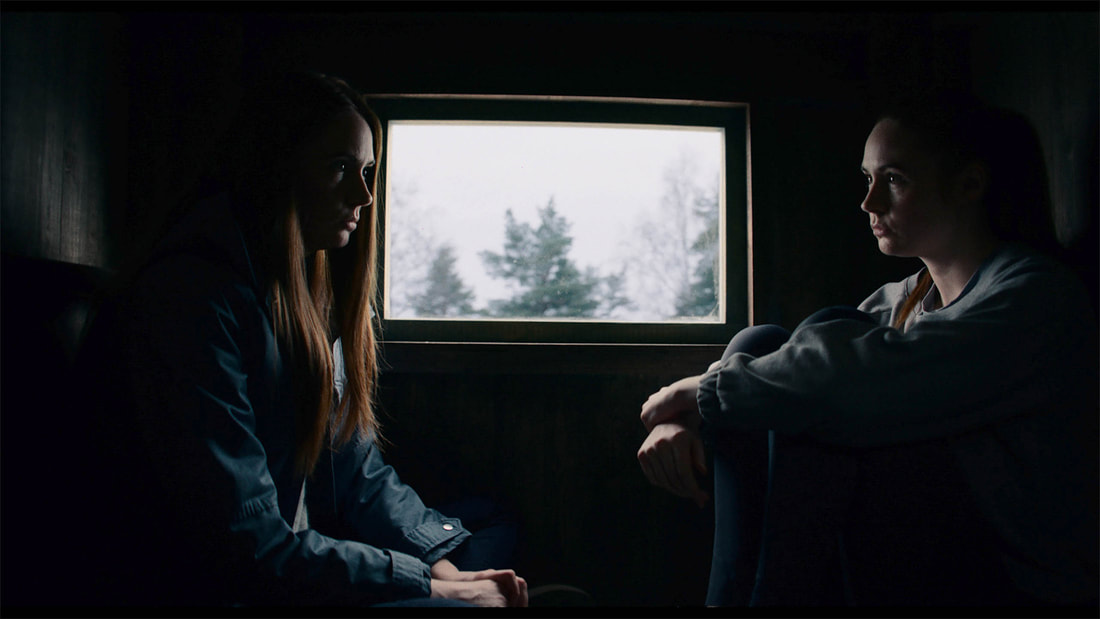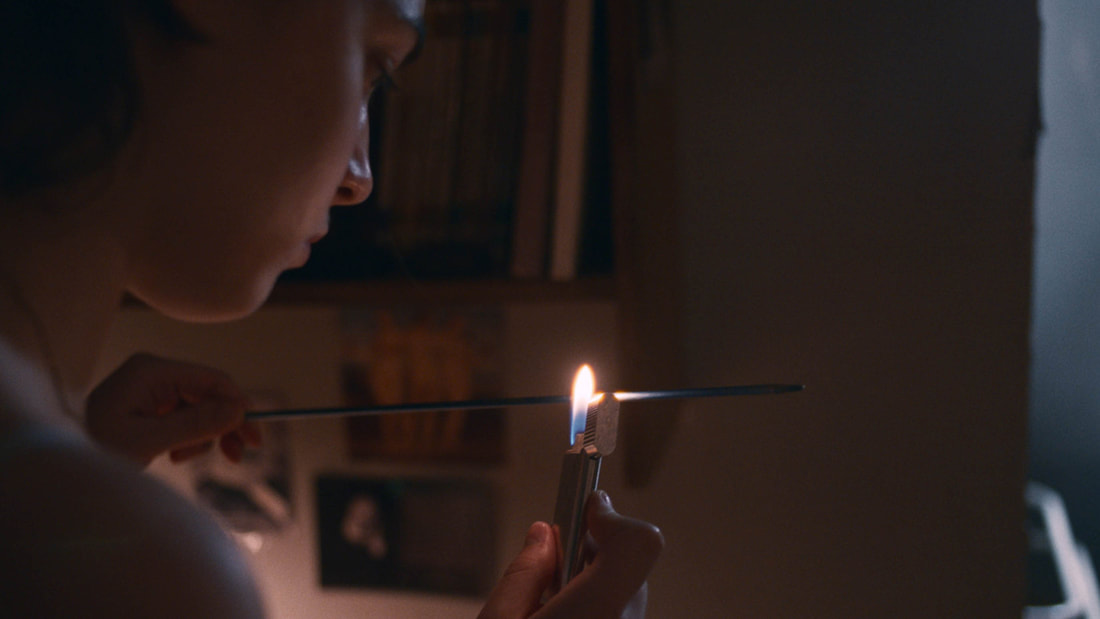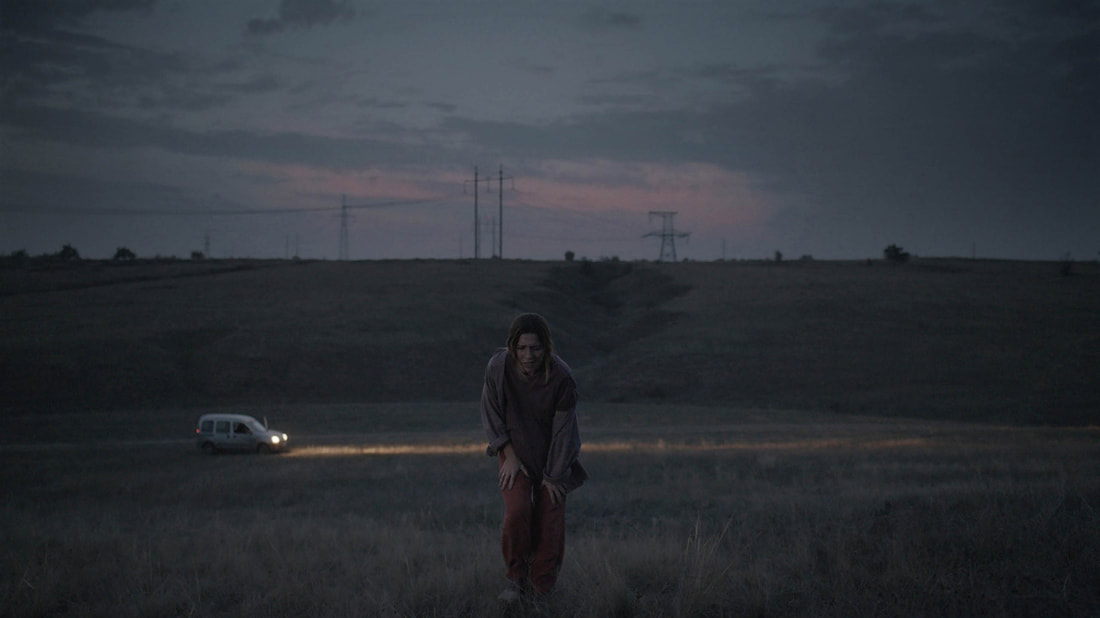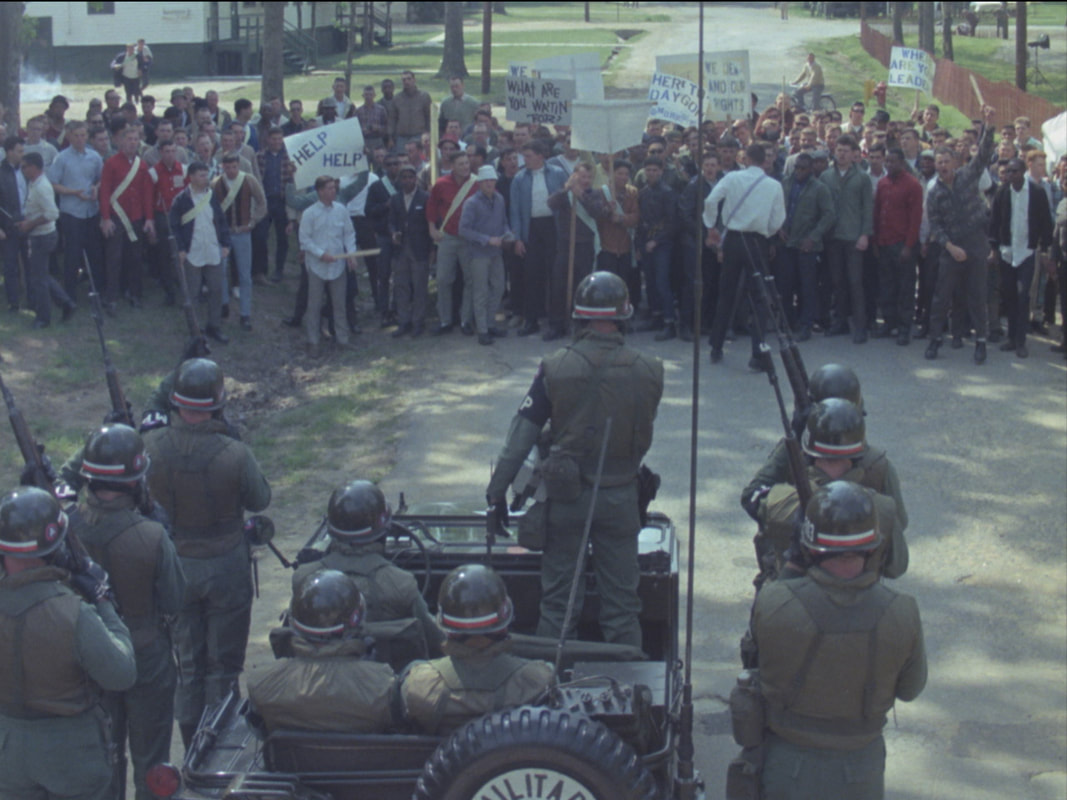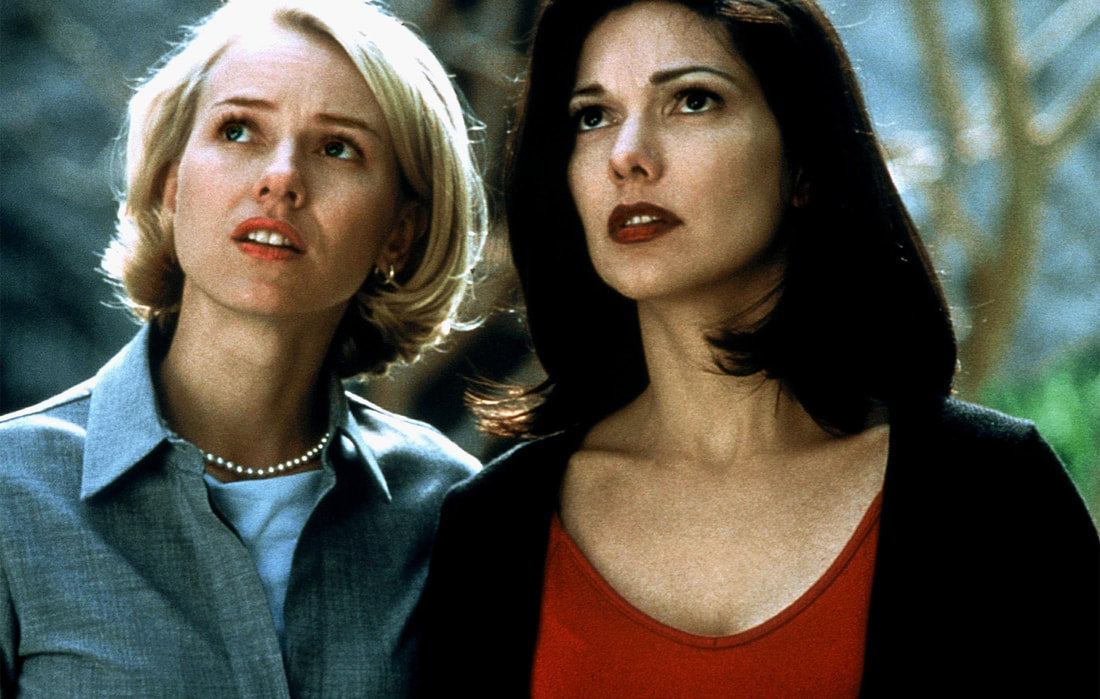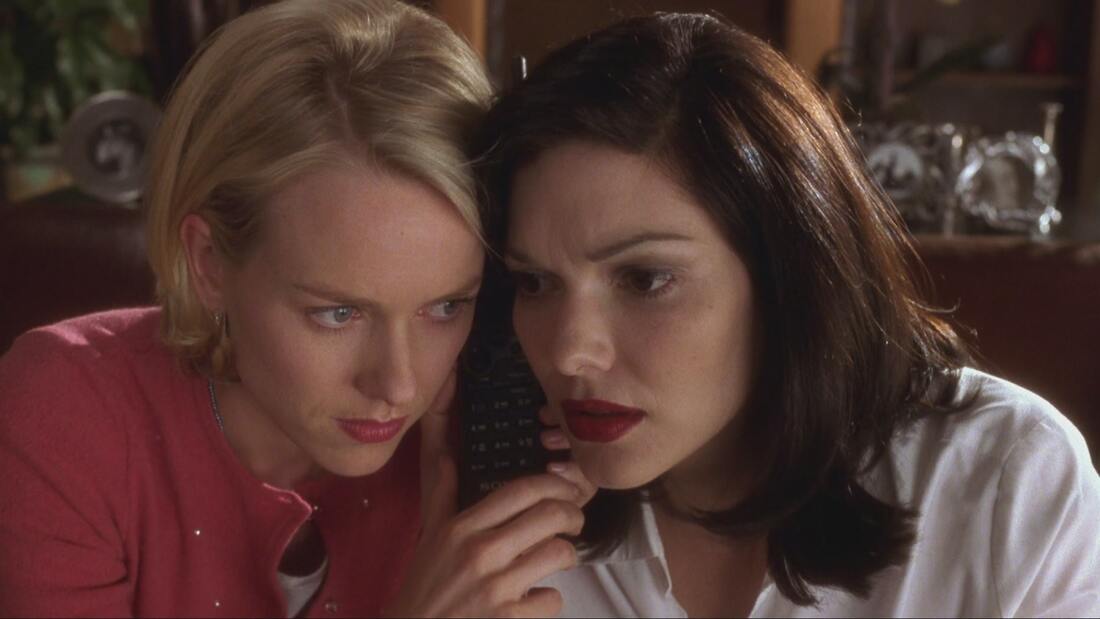|
By Sean Boelman
Whereas the race for Best International Film in previous years has been one of the most unpredictable in terms of nominations, this year’s batch seems to be pretty cut-and-dry, with only six serious contenders because those top players are so widely acclaimed. But that doesn’t mean that there aren’t some exciting other contenders.
The head of the pack right now seems to be the Iranian A Hero, from director Asghar Farhadi, whose films have won in this category twice before. Like much of the filmmaker’s other work, this is a biting and intense social thriller that will undoubtedly connect with Academy voters, especially given Farhadi’s prestige. However, the win is far from a lock, as there is another film that has also been gaining a lot of steam in other awards ceremonies: the Japanese entry Drive My Car. Ryûsuke Hamaguchi’s film has been hailed by many (this critic included) as the finest of the year, and there has even been some talk of Hamaguchi being a long-shot contender for Best Director and Best Screenplay. Could that be enough to push it into the top spot? In what seems to be a distant third, but not so much so that it couldn’t come from behind with a strong campaign, is the Norwegian film The Worst Person in the World. This insightful romantic comedy has just as much love, but isn’t as weighty as the two frontrunners, and as such, may not be taken as seriously. To round out the final five, it will likely be the Italian entry The Hand of God and the Finnish selection Compartment No. 6. The former is the latest work from director Paolo Sorrentino, and while it is much more conventional than his past work, the love for the filmmaker will at least get him a nod. The latter is also a rather slight film, but it’s gotten a generally positive reception. The dark horse for the five is the Danish entry Flee, an animated documentary following a gay Middle Eastern refugee. Although the film has gotten more attention and praise than some of the other films that may be in the running, its medium is a challenge. Not an insurmountable one, by any means, but something that must be considered. Beyond those top six films, there aren’t really any more on the shortlist that have a serious chance. Germany’s I’m Your Man is a very good film, and may get some support for having an A-lister as its lead, but it’s not substantial enough to make a splash. Spain’s The Good Boss is in a similar situation (had they picked Almodovar’s Parallel Mothers, it would have been in the five). Also from Europe are Lamb from Iceland, Hive from Kosovo, Playground from Belgium, and Great Freedom from Austria. However, most of those have been met with a pretty divisive reception, apart from Great Freedom. In any other year, that should be a shoo-in, but it seems like it will end up forgotten in favor of a more auteur-driven lineup. There are two Latin American entries — Prayers for the Stolen (Mexico) and Plaza Catedral (Panama) — and while both are great, neither seems to have been seen by enough people to make the cut. Also from a first-time nominee, the Asian country of Bhutan, is Lunana: A Yak in the Classroom, a pretty yet trite film that doesn’t leave much of a lasting impact. All in all, it seems like there aren’t going to be any real surprises in the Best International Feature race, with very few potential upsets. At this point, all that we really need to be rooting for is for Flee to make it into the final five. Predicted Nominees:
Potential Upsets:
Please Consider:
0 Comments
By Dan Skip Allen
When film fans and people in general talk about the greatest films of all time, inevitably Casablanca comes up in the conversation, and rightly so. It won the Best Picture Academy Award back in 1943 for films released in 1942. Yes, Casablanca is turning eighty years old and it remains one of the greatest, if not the greatest film of all time. In my humble opinion, it is the greatest film of all time. Let me tell you why.
In the time of WWII, there were territories where resistance fighters, criminals, and couples fled so that they get away from some of the Nazi-occupied countries. One of those is French Morocco in Africa. They could take a train and then a boat so they then could get a plane to anywhere they would like to go to escape the Nazi regime that was taking over Europe. Now if you were a scorned lover, you might want to just get out of Paris, France to start anew. That's what Rick Blaine (Humphrey Bogart) does. He creates a whole new identity, buys a bar, and calls it Rick's Cafe Americain. He caters to any that want to drink their sorrows away or do a little gambling and just relax with some good music from Sam (Dooley Wilson), the piano player/singer. Even the Nazis come in for a few rounds. The place is filled with all kinds of characters, good and bad. Humphrey Bogart is phenomenal as Rick Blaine. This man is in the middle between his friend Captain Louis Renault (Claude Rains), the chief of police, and his past love Ilsa Lind (Ingrid Bergman). But she is now in love with another man, Victor Lazlo (Paul Henreid) who is part of the French resistance. This film is full of phenomenal performances. Peter Lorre (Ugarte), Sydney Greenstreet (Signor Ferrari), and Conrad Veidt (Major Heinrich Strasser) are all fantastic in supporting roles in the film as well. The film has some amazing cinematography by Arthur Edeson. The black and white gave the film a noir feeling that has made it one of the distinguishing factors of the charm of the film. The music by Max Stirner is also very iconic. The set production was very innovative for the time as well. One scene towards the end uses little people in place of adults to show distance and a cardboard cutout of a plane is in place of an actual plane is used in the scene. These are some of the tricks used in the film, which won three Academy Awards for Best Picture, Best Director for Michael Curtiz, and Best Writing by a team of people including Phillip G. and Julius J. Epstein, and Howard Koch.
Casablanca is known for many things, among them its amazing quotes considered some of the best in movie history. Quotes such as "We'll always have Paris," when Rick is discussing his past with Ilsa, "Play it, Sam. Play 'As Time Goes By'," when Rick was reminiscing about his time in Paris, France. Captain Louis Renault says "Round up the unusual suspects," when he is confronted with no other choice by Major Strasser. Once again, Captain Louis Renault says near the end of the film to Rick Blaine "Something tells me this is the beginning of a beautiful friendship". The two most famous quotes are addressed to Ilsa from Rick and those are "Heres looking at you, Kid," and my personal favorite, "In all the gin joints in all the towns in all the world, you had to walk into mine." This film is so memorable for all these great lines of dialogue. They have transcended into popular culture.
Casablanca has a charm to it while also having a patriotism that is rarely found in other films. The scene where French resistance and Nazi soldiers sing their countries' anthems is one of the most powerful moments in this film, or any other for that matter. The themes of loyalty to one's country are only of the great themes of this film. Love and love lost is another great theme. As stated before in all the amazing quotes, love plays a huge part in the film. Love from Ilsa to Rick and vice versa. That love prevents Rick from sticking his neck out for anybody as he says, but his heart eventually bends to his head and he helps Ilsa and Victor Lazlo escape Casablanca. That is the true theme. It is so powerful I could watch this film over and over and never get sick of it. One of the determining factors of what a great film is or how people react to a film is how it has transcended decades and how people perceive it. People such as George Lucas have used the Cafe Americain as a substitute for his Mos Eisley Cantina, which is the actual set from Casablanca, in Star Wars: A New Hope. It is said by Obi-Wan Kenobi (Alec Guinness) that it is a hive of scum and villainy, which is very reminiscent of the Cafe Americain. Noted film critic Roger Ebert loved Casablanca so much he wrote a book about it called A Kiss is Still A Kiss published in 1984. Casablanca is a film that has inspired so many over the decades. Casablanca is such a great film. I can't say enough about how much I love it. I see something new in it every time I watch it. There are little details like those of the young couple seeking refuge. Rick helps them by telling them which number to put the ball on while playing roulette. And Ugarte giving Rick the letters of transit, which sets off the entire film. This story transcends that of normal filmmaking. It is a film with many memorable quotes, great acting performances from its entire cast, great directing from Michael Curtiz, and a story that has great themes of loyalty, friendship, and love. There is no other film that creates such an inspiring story, especially one that came out in 1942 in the heart of WWII. The country needed this film then and it needs this film now. It is as relevant then as it is now. It is an absolute masterpiece of filmmaking on every level conceivable. 80 years later, it stands the test of time. The Criterion Voyages (Spine #1105): MENACE II SOCIETY -- A Harrowing Look at a Life of Crime1/26/2022
By Dan Skip Allen
Menace II Society takes place in Los Angeles in the wake of the riots that happened in the early '90s. The Hughes Brothers — Albert and Allen — show a world of drugs and crime and hard streets and neighborhoods where teens tend to grow up fast. Criterion has branched out and started getting the rights to some of these more urban films with different takes on inner-city life. This Hughes Brothers film is that.
The film focuses mainly on two young men Caine (Tyrin Turner) and O Dog (Lorenz Tate, Girls Trip) They get into all kinds of trouble from robbing convenience stores to selling drugs on the street and holding up people for basically nothing. They hang with a gang of guys that do the exact same thing. This lifestyle leads them down the wrong path and death follows. The film has some very famous actors in supporting roles as well. Samuel L. Jackson plays Caine's father Tat Lawson in flashback scenes from the 1970s, who gave him this idea of a life of drugs and crime. Jada Pinkett Smith (The Matrix) plays Connie, a young mother who is interested in Caine. He cares about her as well as her young son. Charles S. Dutton (Rudy) is a teacher, Mr. Butler, who tries to give Caine a new perspective on life from a religious point of view, using the Muslim religion to help get him out of the neighborhood.
The Hughes Brothers get to the heart of what it's like for Black youths and the citizens in general in Compton and South Central L.A. As the song says, it's hard out there for people in these neighborhoods. Caine has people that love him and want to rescue him from this lifestyle. It means leaving his friends and grandparents behind though. And that's not an easy decision for him. He's a young man with a lot on his mind and his plate. Things aren't easy for him any way you slice it.
The film has a great soundtrack that goes along with the film as well. Songs from various rap groups and labels of this time period rang throughout the film, like "Straight Up Menace", "Packin' a Gun", and "Only the Strong Survive" are all anthems for the world this film takes place in. Artists such as D Quick, Too Short, and MC Eiht sing songs that talk about the gangster lifestyle and growing up in this world of drugs, guns, and crime. The music perfectly fits the film's feel and vibe. Menace II Society captures the feel of this world faultlessly. The blood and violence of this world are too hard for some people to escape. Tiger Williams wrote a great script depicting this lifestyle. If this film isn't a tragic look at why this kind of life doesn't pay, I don't know what will. The Hughes Brothers made a film that transcends. Any kid from any neighborhood in any state in America can relate to this kind of story. Almost thirty years after it came out, it's still relevant today.
By Sean Boelman
After a virtual edition in 2021 that was one of the most successful and talked about film festivals of the year, Sundance hoped to return in 2022 with a hybrid edition to knock cinephiles’ socks off. And while Omicron did derail those plans, Sundance went ahead with an all-virtual edition on the same dates, with only one film in the selection opting out of the pivot.
As a result, film fans across the United States have the opportunity to watch all of the great films that are part of this year’s Sundance lineup from the comfort of their own home. From high-profile premieres of star-studded projects to new discoveries of independent films from the U.S. and abroad, there are plenty of great films to choose from. We at disappointment media are excited to be covering the 2022 edition of the Sundance Film Festival, and we have gotten the chance to see some of the films that will be playing at the fest beforehand. Here are some of the films that we think you shouldn’t miss this opportunity to see them now: The Cow Who Sang a Song Into the Future
There is always at least one major discovery to be found in the World Cinema Dramatic competition at Sundance, and hopefully this year, it is the Chilean film The Cow Who Sang a Song Into the Future. There are a lot of moving parts in Francisca Alegria’s drama but they all come together in a way that is profound and poetic. Alegria sets out to explore its central themes in the human drama while also offering a timely environmentalist message, and she pulls it off very confidently, especially given that this is her first feature.
Dual
One of the highest-profile films to premiere at this year’s festival, Dual is sure to earn some eyes thanks to it’s A-list cast. Director Riley Stearns’s follow-up to cult-favorite dark comedy The Art of Self-Defense, this film yet again uses his deadpan style, albeit this time in the context of a sci-fi premise. Karen Gillan plays a woman with a terminal illness who clones herself, but then must fight her clone in a duel to the death when she miraculously recovered. It’s a wild premise that’s just as wild in execution as it sounds. You won’t want to miss this.
Happening
The French abortion drama Happening was one of three films that France was considering to submit for the Academy Award for Best International Feature (a submission which was given to the not-shortlisted Titane), and they made the wrong choice by not selecting it. Audrey Diwan’s film is absolutely harrowing, and while it deals with subject matter that has been explored in several films recently, none of them has had as visceral of an impact as this one does. It’s a bit on the graphic side, so it’s not for the faint-of-heart, but it’s the type of film that will leave the viewer feeling shaken.
Klondike
The crisis involving Malaysia Airlines Flight 17 was a major news event in 2014, and while that is a major plot point in Maryna Er Gorbach’s film Klondike, there is much more to the film than that. It’s really the story of a family torn apart by the uncertainty of war. It’s the type of film that is just building and building and you’re waiting for it to explode, and once it finally does, it just absolutely crushes you. It’s understated, yet impactful in its approach, and something that will linger long after the credits roll.
Riotsville, USA
Sundance documentaries can be a bit hit-or-miss, but Sierra Pettengill’s Riotsville, USA is one of the most successful in recent memory. Composed entirely of archive footage, the film explores a training compound to help the military and law enforcement prepare to respond to the protests and riots happening in the 1960s. There is an eerie parallelism to be drawn between what was happening then and now, especially in regards to how the government saw it, which makes this one of the most angering films to play at this year’s festival.
The 2022 Sundance Film Festival runs virtually from January 20-30.
By Dan Skip Allen
Mulholland Drive is a famous street above Los Angeles and has a mystique like no other in Hollywood. So go figure one of the most mysterious filmmakers in Hollywood, David Lynch, would make a movie named after this street. The film lives up to the name because it's a weird film, not unlike Lynch's other films and television work like Twin Peaks and Eraserhead.
The film starts with a memorable credits scene with a car driving down Mulholland Drive. The car stops and the men inside tell a woman (Laura Harring) to get out. At that moment, two cars are racing down the street and one of them runs into the limo, sending it careening into a nearby ditch. The woman crawls out of the car and stumbles around, eventually walking down a hill and falling asleep by a bush. She wakes up and goes into another woman's home while she's gone. That's the beginning of this crazy Hollywood story. It's even wilder than it sounds, though. When the woman's niece (Naomi Watts) comes to stay in the house, she helps the woman who now has amnesia find out what is going on. They work together to uncover this mystery. The film also focuses on a film director (Justin Theroux) and a bunch of shady gangsters and assorted other weirdos in darkened rooms and cowboy figures. This film is one of the weirdest David Lynch has ever done, but it's done very well like all of his movies are except Dune. Lynch infuses this film with everything including the kitchen sink. It has a noir feel to t even though much of it is set during the daytime. Lynch knows how to add odd moments like when the two women visit a theater with a trumpet player and then the room turns blue or when the director visits a cowboy at a horse ranch. He talks to him in weird language or riddles if you will. All Lynch's trademark tropes are in this film. The 4K version helps all the colors stand out as well.
The technical aspects of the film are very good as well. The score by Angelo Badalamenti is moody and helps set the atmosphere while it has a song sung at the theater that is breathtakingly amazing. The cinematography by Peter Deming and production design are both very good. This film goes to a bunch of locations and they all look gorgeous and have a vibe all their own. Only David Lynch could have made this wild, outside-the-box (pun intended) film. It has so much craziness in it it's hard to describe it and what's going on.
The cast has some amazing cameos full of stars viewers might recognize like Robert Forster as a police detective, Billy Ray Cyrus who's having an affair with Justin Theroux's character's wife, Michael J. Anderson as the man in the darkroom, and Dan Hedaya as a gangster. That's just the tip of the iceberg of all the weird and interesting casting choices. Lynch always picks interesting people for roles in his film. This one is no different. Mulholland Drive is among a plethora of David Lynch films in the Criterion Collection. Among them, this one might be the most metta considering it's a film about making a film. It has a lot of other aspects as well: a noir, a mystery, and a love letter to Hollywood. Lynch shows in this film how much he loves Hollywood in his weird and offbeat way... the only way he knows how to make a film. Lynch was nominated for the best academy award for his work on the film. It was very deserved. |
The Snake HoleRetrospectives, opinion pieces, awards commentary, personal essays, and any other type of article that isn't a traditional review or interview. Archives
June 2024
Categories
All
|
|
|
disappointment media
Dedicated to unique and diverse perspectives on cinema! |

